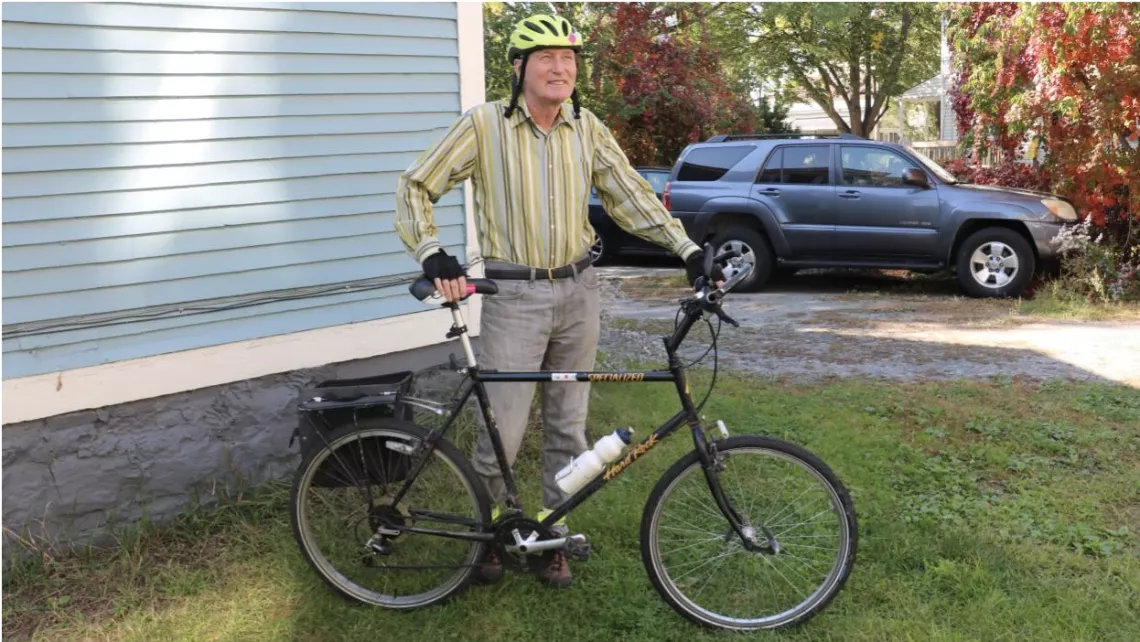This commentary was submitted to the Vermont Sierra Club by former Vermont State House Transportation Committee Chairman Curt McCormack. Former Representative Curt McCormack received an award from the Sierra Club for his leadership on Transportation Issues.
Back in the 1980s car manufacturers, unions and the federal government got together to create loopholes in a host of federal laws to give Sports Utility Vehicles (SUVs) a cost advantage. Manufacturers make more money on SUVs than they do on passenger cars. The loopholes are accomplished by allowing SUVs to be defined as small trucks instead of passenger vehicles. Small trucks, which includes the enormous pick-up trucks we see today and SUVs, are allowed to pollute ground-based air, be less safe, and get worse gas mileage than passenger cars.
After investing billions of dollars in advertising, manufacturers have convinced the new car-buying public to make the SUV the new passenger car so that now we have a country full of consumers who think they need 4-wheel drive high-riding vehicles even though virtually none of them ever take the vehicle off-road (like the ads show) and millions live where it never snows. With pick-up trucks and SUVs now garnering over 60% of the entire automobile market, the slow improvement in gas mileage has been stymied.
The small truck category is allowed to average considerably worse gas mileage than the passenger cars. By moving auto sales away from the passenger car category and into the small truck category, manufacturers have managed to meet the overall mileage requirements without actually improving overall mileage as much as they otherwise would have if the SUVs and pick-up trucks were held to the same standards or if their market share continued at the level it was in the past, about 20%.
In the earlier years of the gas mileage requirements we saw both small trucks and passenger cars become a little smaller, like they are in Europe and this was acceptable to the consumer. But lately, taking full advantage of the loopholes, manufacturers have eked out the meager gas mileage required of SUVs and pick-up trucks and made the vehicles larger. So the overall gas mileage last year was not improved at all over the year before.
The new larger vehicles make it difficult for drivers to see children compared to passenger cars and they do more damage in accidents. As a result, in the past ten years, pedestrian deaths have increased by 54%. In 2021 there were 7,485 pedestrian deaths in the U.S., the highest in 40 years.
So yes, the EPA and the National Highway Traffic Safety Administration (NHTSA) should remove the loopholes and treat SUVs and pick-up trucks like passenger cars since that is how they are used. There are a number of things States can do to give the federal government a nudge.
One way could be Fee-bates: a non-commercial car and truck sales and use or registration fee system set by CO2 emissions or gas mileage as opposed to being set by the retail price as these fees are today. With such a system, good mileage vehicles actually receive a rebate, and guzzlers pay a fee. It can be revenue-neutral. France has instituted such a program and after just one year showed a six percent shift in sales to more efficient vehicles.
If Fee-bates are successful we should see a shift in the market to smaller, safer, vehicles. Imagine a State that actually looks different. That looks more like Europe. Waiting for Electric Vehicles (EVs) to take over is not good enough. For the next several years most automobile sales will still be gasoline and the vehicles will be around for a long time.
EPA and NHTSA have never corrected these loophole flaws in the mileage system. But States can take measures to nudge them along to make an ultimate mileage minimum ultimately making the enormous vehicles a little smaller. If we do not do this we will have electricity guzzlers replacing gas guzzlers and unsafe vehicles replacing unsafe vehicles as we make the glacial
conversion to EVs.
Measures such as Fee-bates are only a few of the things a small State can do to influence the national debate on climate change. The mileage loopholes can be fixed in no time and need to be as soon as possible. Our actual emissions are not so much the point of doing our part and providing leadership.
Let's act here in Vermont and break away from the attitude that says that there is no sense in acting until others do. Apparently, this was the crux of the failed defense of the State of Montana against the recent young people’s climate lawsuit there. Actions such as Fee-bates can go far beyond the actual emission reductions in smaller jurisdictions such as Montana or Vermont.
